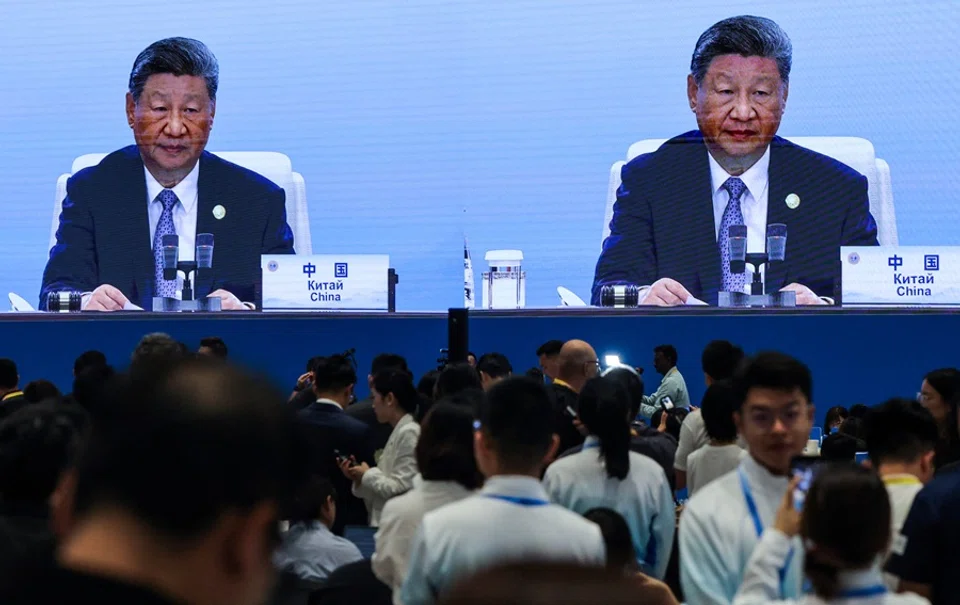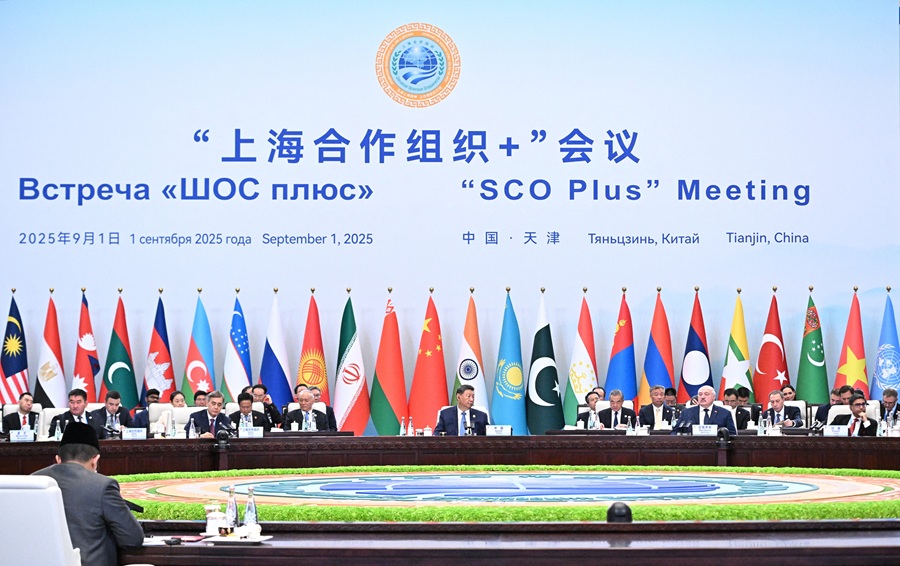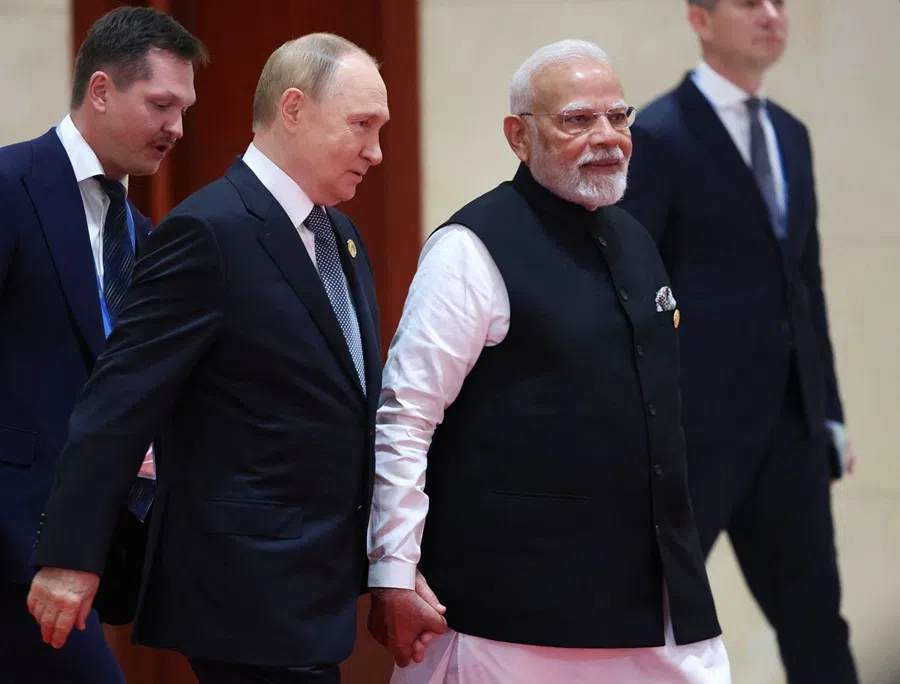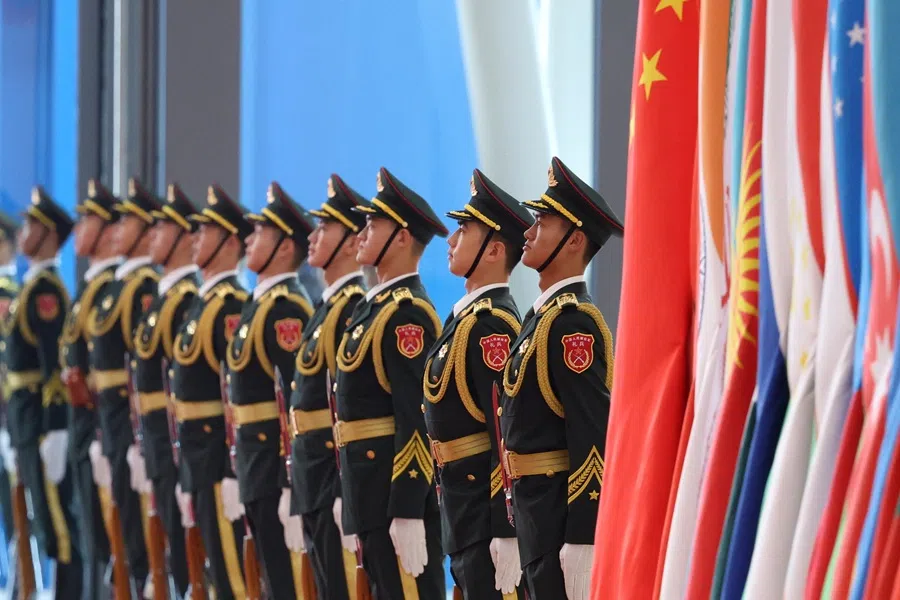Tianjin Declaration: China’s blueprint for a post-Western world?
At the recent Shanghai Cooperation Organisation (SCO) meeting in Tianjin, China positioned the bloc as a vehicle for fairer global governance and multipolar cooperation. While unity was the message, the path forward reveals both shared ambitions and the realities of diverse interests. Lianhe Zaobao correspondent Lim Zhan Ting finds out more.

As Western influence recedes, China steps forward. On 1 September, China hosted the “Shanghai Cooperation Organisation (SCO) Plus” meeting in Tianjin, where President Xi Jinping called for a new era of global governance — one that protects the interests of developing nations and resists bloc confrontation and power politics.
Positioning China as a champion of multipolar cooperation, Xi urged participating countries to work together in building a fairer, more equitable international system. His message comes at a time when, according to Chinese academics interviewed, the global order is in flux. As US and Western dominance wanes and no new global leadership has fully emerged, they argue, China sees both an opportunity, and a responsibility, to fill the governance vacuum, particularly through frameworks like the SCO.
Several member countries like China, Russia, India and Iran are facing US and Western tariffs and sanctions, making the summit an opportunity for these nations to unite and counterbalance the West.
Xi’s comments
At the summit of the ten SCO member states, Xi highlighted the organisation’s growing international influence and appeal. Yet he cautioned that, amid an evolving global landscape, it is crucial to fully unlock the SCO’s potential to meet future challenges.
Xi emphasised the need for the SCO to find common ground despite differences, uphold fairness and justice, and promote a balanced historical understanding of World War II. He called on members to reject Cold War mentalities, bloc confrontations and bullying tactics, aiming instead to build a more just and equitable system of global governance.
Expanding the vision at the broader “SCO Plus” meeting — which includes observers and dialogue partners — Xi outlined five guiding principles for China’s global governance agenda: adhering to sovereign equality, abiding by international rule of law, practising multilateralism, advocating a people-centred approach and focusing on real action.

He expressed hope that the SCO will “uphold the common interests of the global south” and “continue to unequivocally oppose hegemonism and power politics”, serving as a pillar in promoting a multipolar world and greater democracy in international relations.
China, India and Russia together
This SCO summit brought together over 20 foreign leaders, including Indian Prime Minister Narendra Modi and Russian President Vladimir Putin. Several member countries like China, Russia, India and Iran are facing US and Western tariffs and sanctions, making the summit an opportunity for these nations to unite and counterbalance the West.
During his speech, Putin pointed the finger at the West, asserting that the Ukraine crisis was not triggered by Russia’s attack but by a coup in Ukraine, which he claimed was supported by the West.
On the sidelines, Putin shared a warm interaction with Modi and Xi. A live video showed Putin and Modi holding hands as they approached Xi, after which the three leaders chatted and laughed together, highlighting the friendly ties among the heads of China, Russia and India.
Besides promoting global governance initiatives, Xi also pledged at the summit to increase investment and aid to SCO member states.

Zhang Jiadong, director of the Center for South Asian Studies at Fudan University, told Lianhe Zaobao that global governance has historically relied on the US and the West, but their influence is now waning while new powers have yet to emerge. This gives China more reason to take the lead in proposing governance initiatives and encouraging broad international participation.
Forming a new multipolar order
Besides promoting global governance initiatives, Xi also pledged at the summit to increase investment and aid to SCO member states. This includes implementing 100 “small and beautiful” livelihood projects in member states with such need, providing 2 billion RMB (roughly US$280 million) in grants to SCO member states within this year, and issuing an additional 10 billion RMB in loans to the member banks of the SCO Interbank Consortium over the next three years.
Xi also emphasised the need to establish a development bank under the SCO as soon as possible, in order to provide strong support for the security and economic cooperation of member states. China proposed this initiative as early as 2010, but it reportedly stalled at the time because Russia leaned towards expanding its own Eurasian Development Bank.
Xi also reiterated China’s willingness to share “mega-sized market opportunities” and to continue implementing high-quality development action plans, including the establishment of three China-SCO cooperation platforms in energy, green industry and the digital economy.
The SCO member states also signed and issued the Tianjin Declaration, affirming that the international system is evolving towards a more just, equal and representative multipolar direction, as well as “strongly condemning the military aggression launched by Israel and the US against Iran in June 2025”.
With regard to the Israel-Palestine conflict, the declaration expressed concern over the continued escalation of the conflict, and strongly condemned actions that have led to numerous civilian casualties as well as a humanitarian disaster in the Gaza Strip.

The two-day SCO summit has concluded, and Xi and the various foreign leaders who came are on their way to Beijing for the commemoration of the 80th anniversary of the victory in the War of Resistance Against Japanese Aggression and the World Anti-Fascist War on 3 September.
The Tianjin Declaration
The SCO member states signed and issued the Tianjin Declaration, condemning Israel and the US for launching military aggression against Iran in June this year, violating Iran‘s sovereignty and territorial integrity and resulting in serious consequences for global peace and stability.
Iran is a SCO member state. The declaration stated that the military actions by Israel and the US targeted civilian facilities such as key nuclear infrastructure, and that the “acts of aggression” resulted in civilian casualties. The declaration also pointed out that nuclear safety and the protection of nuclear facilities must be ensured at all times, including during military conflicts.
The member states reaffirmed their commitment to peacefully resolving current issues through diplomatic efforts, and called on relevant parties to resume constructive dialogue to jointly find solutions to prevent further deterioration of the situation.
With regard to the Israel-Palestine conflict, the declaration expressed concern over the continued escalation of the conflict, and strongly condemned actions that have led to numerous civilian casualties as well as a humanitarian disaster in the Gaza Strip. It also emphasised the need for an immediate and lasting ceasefire to ensure that humanitarian aid can enter Gaza.
... although China-India relations have warmed following Xi’s meeting with Modi on the eve of the summit, India still considers the Belt and Road Initiative not as a multilateral cooperation mechanism but a China-centric system. — Zhang Jiadong, Director, Center for South Asian Studies, Fudan University

The member states pointed out that the only way to ensure peace and stability in the Middle East is through a comprehensive and just resolution of the Palestinian issue.
On security and economic cooperation, the declaration agreed to further improve and reform the global economic governance system. However, India still does not endorse China’s Belt and Road Initiative.
The declaration mentioned that the eight countries of Belarus, Iran, Kazakhstan, Kyrgyzstan, Pakistan, Russia, Tajikistan and Uzbekistan all supported China’s Belt and Road initiative, with no mention of India’s support.
The Center for South Asian Studies’ Zhang commented that although China-India relations have warmed following Xi’s meeting with Modi on the eve of the summit, India still considers the Belt and Road Initiative not as a multilateral cooperation mechanism but a China-centric system.
Zhang assessed that the Tianjin summit achieved fruitful results and consolidated the value of the SCO. However, he reminded that the summit’s statements are more of an indicative guidance for member states, and did not have binding force — for instance, on anti-terrorism issues, consensus may appear to be reached on the surface, but there would still be challenges in actual cooperation.
This article was first published in Lianhe Zaobao as “习近平上合峰会力推全球治理倡议 吁成员国反对“霸凌行径”” and “上合组织签署发布《天津宣言》 谴责以美对伊朗军事侵略”.



![[Video] George Yeo: America’s deep pain — and why China won’t colonise](https://cassette.sphdigital.com.sg/image/thinkchina/15083e45d96c12390bdea6af2daf19fd9fcd875aa44a0f92796f34e3dad561cc)
![[Big read] When the Arctic opens, what happens to Singapore?](https://cassette.sphdigital.com.sg/image/thinkchina/da65edebca34645c711c55e83e9877109b3c53847ebb1305573974651df1d13a)
